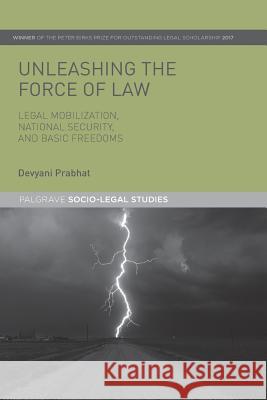Unleashing the Force of Law: Legal Mobilization, National Security, and Basic Freedoms » książka
topmenu
Unleashing the Force of Law: Legal Mobilization, National Security, and Basic Freedoms
ISBN-13: 9781349928118 / Angielski / Miękka / 2018 / 225 str.
Unleashing the Force of Law: Legal Mobilization, National Security, and Basic Freedoms
ISBN-13: 9781349928118 / Angielski / Miękka / 2018 / 225 str.
cena 100,37
(netto: 95,59 VAT: 5%)
Najniższa cena z 30 dni: 96,35
(netto: 95,59 VAT: 5%)
Najniższa cena z 30 dni: 96,35
Termin realizacji zamówienia:
ok. 22 dni roboczych.
ok. 22 dni roboczych.
Darmowa dostawa!
Kategorie:
Kategorie BISAC:
Wydawca:
Palgrave MacMillan
Seria wydawnicza:
Język:
Angielski
ISBN-13:
9781349928118
Rok wydania:
2018
Wydanie:
2016
Numer serii:
000448395
Ilość stron:
225
Waga:
0.34 kg
Wymiary:
23.39 x 15.6 x 1.3
Oprawa:
Miękka
Wolumenów:
01
Dodatkowe informacje:
Wydanie ilustrowane











